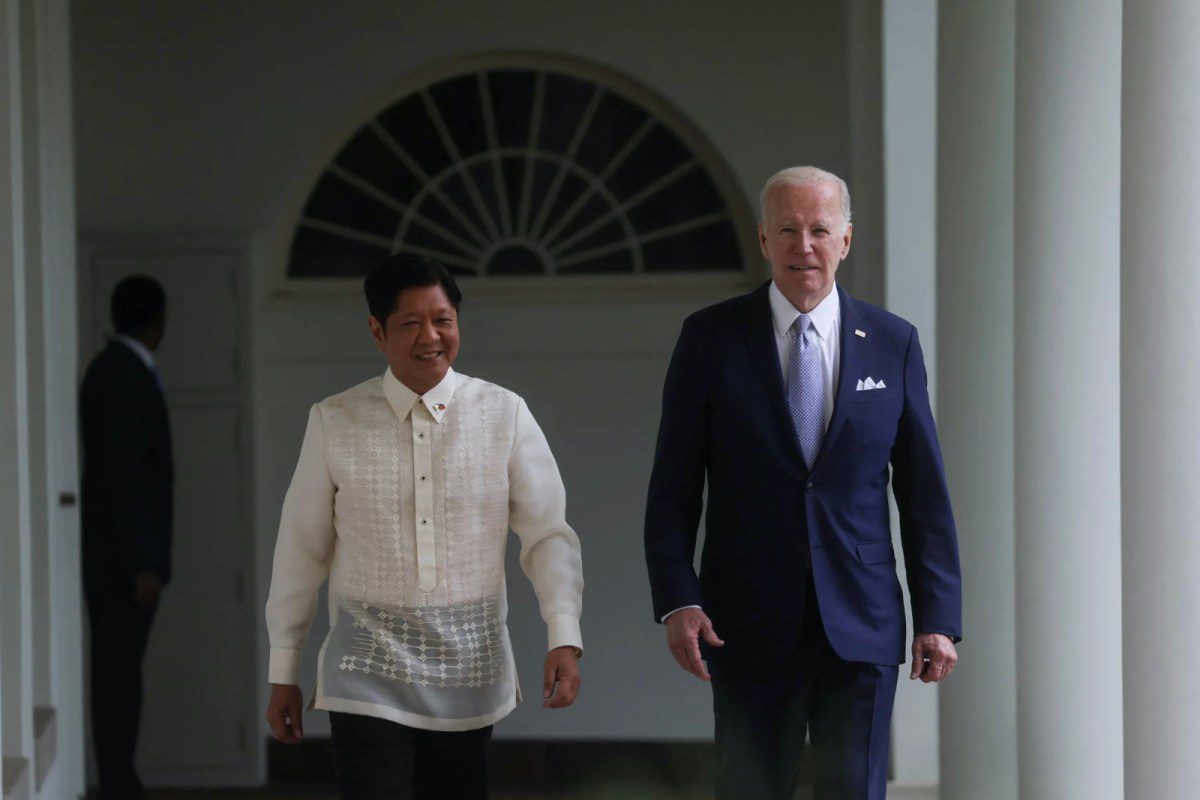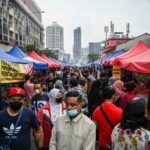Global Courant 2023-05-03 16:01:07
After a highly anticipated meeting at the White House, US President Joe Biden and his Philippine counterpart Ferdinand Marcos Jr. praised “the remarkable bonds of friendship, community, and shared sacrifice that serve as the foundation of the U.S.-Philippines alliance.”
Amid a rapid re-establishment of bilateral ties following six years of pro-Beijing policies under former Philippine President Rodrigo Duterte, the two allies welcomed the historic momentum in US-Philippine relations and declared a shared commitment to ” continue engagement and collaboration on all issues of common concern.”
After exchanging warm words as Biden affectionately told his Philippine guest that “(I) can’t think of a better partner than you,” the two sides pledged to “remain the best of allies” and continue “to work together to deliver a better future for our citizens and address the emerging challenges of the twenty-first century.”
Bonhomie and superlatives aside, however, the acclaimed confab largely delivered vague promises of deeper strategic collaboration. In spite of the laundry list of bilateral initiatives, both sides failed to commit to key outstanding issues.
The White House, for its part, has not given any concrete trade and investment initiatives, not even on it a long hanging bilateral free trade agreement with the Philippines.
For his part, Marcos Jr made it clear through generic statements and strategic ambiguity that he is not ready to fully side with the US against a resurgent China. Despite big statements in recent months, the two allies are still ironing out key details of a expanded Enhanced Defense Cooperation Agreement (EDCA).
Just days after receiving South Korean President Yoon Suk Yeol, he produced a series of resulting agreements on nuclear nonproliferation and defense cooperation, Biden turned on the charm for his next Asian guest.
“You know, when we met in New York last year, you told me that — that a strong alliance must continue, I quote — I use your phrase — “to evolve as we face the challenges of this new century.” And we face new challenges. And I can’t think of a better partner than you,” Biden told Marcos Jr., referring to their meeting on the sidelines of the United Nations General Assembly last year.
President Ferdinand Marcos Jr. meets US President Joe Biden at a bilateral meeting on the sidelines of the UN General Assembly on Sept. 22, 2022. Photo: Office of the Press Secretary / Handout / File
As the eponymous son of a former Filipino strongman, Marcos Jr was no stranger to Washington DC or the White House. A once heir to the throne, he often accompanied his parents, Ferdinand Marcos Sr and First Lady Imelda Marcos, on numerous visits around the world, from China to America.
Nevertheless, Marcos Jr. the first Filipino leader in years to visit the White House. His predecessor, Rodrigo Duterte, once described the US as “worthless” and stubbornly kept his promise never to visit the White House during his six-year tenure.
While “promoting democracy” is central to its global agenda, it goes as far as hosting a Summit for democracy annually, the Biden administration has been largely mum on the controversial background of the Marcos family.
The family of the Philippine president currently facing multiple lawsuits in the US based on allegations of past corruption and rights violations.
Although it was not an official state visit, both sides had an important item on their agenda. Biden sought maximum cooperation with the Philippines amid growing concerns over a possible Chinese invasion of Taiwan.
Marcos Jr, on the other hand, was particularly interested in seeking U.S. help to modernize the Philippine military and negotiating a new set of trade and investment deals, especially in public infrastructure development.
On the face of it, the two allies improved their bilateral ties on multiple fronts. To begin with, the US leader reaffirmed his country’s “romantic alliance commitments to the Philippines” and re-clarified that “An armed attack on Philippine forces, public vessels or aircraft in the Pacific Ocean, including the South China Sea, is an appeal would do on the mutual involvement of the US”. defense commitments under Article IV of the 1951 U.S.-Philippine Mutual Defense Treaty.”
In light of recent Chinese harassment of Philippine vessels, the US reiterated its “support (for) the right and ability of Philippine fishermen to continue their traditional livelihoods” as well as “unwavering commitment to freedom of navigation and overflight” in the South China Sea.
Crucially, the US also welcomed growing cooperation among its regional allies, including “trilateral forms of cooperation between the Philippines, Japan and the United States, as well as the Philippines, Australia and the United States.”
A Philippine naval officer stands guard during the arrival of the US missile destroyer USS Chung Hoon for US and Philippine joint naval military exercises in an archive photo. Photo: AFP/Noel Celis/Getty Images
In a nod to Marcos Jr.’s emphasis on trade and investment relations, Biden underlined his commitment to “deepening our economic cooperation, which will continue to deepen and which I believe is mutually beneficial.”
“We are tackling climate change. We are advancing our countries’ opportunities… and we are standing up for our shared democratic values and workers’ rights…” Biden added during his meeting with Marcos. Accordingly, the US is set to launch a “first of its kind” presidential election trade and investment mission to the Philippines.
The long list of joint initiativeshowever was more sizzle than steak. For example, there was only a vague discussion about the US-Philippines Trade and Investment Framework Agreement (TIFA) or the Indo-Pacific Economic Framework (IPEF).
Amid internal quarrels, the Biden administration didn’t even succeed advance the long-awaited Digital Free Trade Agreement with Asian partners.
There is also no indication that Washington will ever join the Comprehensive and Progressive Agreement for Trans-Pacific Partnership (CPTPP) or the Comprehensive and Progressive Agreement for Trans-Pacific Partnership (RCEP), the two main trade agreements in the region.
The Biden administration’s semi-protectionist emphasis on “onshoring” and “Made in America” production has diminished hopes of expanded market access for key Asian partners such as the Philippines.
Equally vague, however, was the meeting on the precise outline of the recently expanded EDCA deal between the two parties.
Under the EDCA, the Pentagon hopes to store missile and artillery systems in strategically located facilities in the Philippines. In response, Beijing has warned Manila not to “stir up” regional tensions.
Prior to his visit to the White House, Marcos Jr stressed repeatedly his opposition to any kind of defense deal allowing Americans to use Philippine facilities as outposts for offensive operations against China.
Manila seems adamant about keeping EDCA as flexible as possible to constantly calibrate the nature and size of US forces in its territory.
Philippine and United States Marines during a surface-to-air missile simulation as part of the joint Kamandag exercises on Oct. 10, 2019. Photo: Lance Cpl. Brienna Tuck / U.S. Marine Corps
As a result, the two allies have yet to agree on both the size of U.S. troop deployments and the types of weapons systems that may be pre-deployed at pre-designated Philippine locations and facilities, especially those near Taiwan. and the South China Sea.
“We will reaffirm our commitment to advancing our long-standing alliance as an instrument of peace and a catalyst of development in the Asia-Pacific region,” Marcos said shortly before meeting Biden, making it clear that he does not want the Philippines to become a become a “stopover” for US military activity against China.
“We will not encourage any provocative action involving the Philippines by any other country… We will not allow the Philippines to be used as a staging post for any kind of military action,” he added.
Follow Richard Javad Heydarian on Twitter at @Richeydarian
Similar:
Loading…








